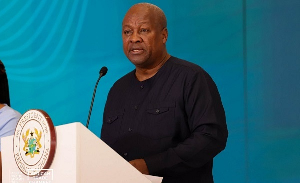Hichem Mechichi, who until now has served as Tunisia's interior minister, has been appointed to form the next government, the president's office said Saturday. The 46-year-old lawyer succeeds Elyes Fakhfakh, who resigned earlier this month -- but Mechichi was not one of the names proposed by the ruling political parties to President Kais Saied.
The president made the announcement in a video posted on the presidency's website.
As well as being interior minister in the outgoing government, Mechichi has been a counsellor to President Saied, handling legal matters. He has previously been chief of staff at the transport ministry and also served in the social affairs ministry.
Mechichi now has a month to form a government against a backdrop of political tensions among the major parties.
At that point his choice will be put to a parliamentary vote of confidence and will need an absolute majority to succeed. Failing that, parliament will be dissolved and new elections organised within three months.
In the last elections held in October the Islamist-inspired Ennahdha came top but fell far short of a majority -- holding 54 of 217 seats in parliament -- and eventually agreed to join a coalition government.
Political divisions Fakhfakh's resignation on July 15 after less than five months in office threatened fresh political deadlock in the North African nation as it struggles with the economic fallout from the coronavirus pandemic.
And it came as a political row deepened with the Islamist-inspired Ennahdha party, the largest in parliament, over allegations against him of conflicts of interest.
Relations between the 47-year-old outgoing premier and Ennahdha have been strained since the October legislative elections. Fakhfakh stepped down the same day the party filed a no-confidence motion against him.
Ennahdha had initially nominated an independent for premier but he failed to win the support of parliament, leading the president to name former finance minister Fakhfakh for the post.
Faced with the prospect of fresh elections, Ennahdha eventually agreed to join the coalition government.
Tunisia has been praised as a rare success story for democratic transition after the Arab Spring regional uprisings sparked by its 2011 revolution.
But its leaders have struggled to meet the expectations of the Tunisian people and the already fragile economy has been battered by the closure of the country's borders due to the pandemic.
The illness has claimed around 50 lives and infected more than 1,400 people in Tunisia.
Africa News of Sunday, 26 July 2020
Source: AFP NEWS AGENCY
Tunisia interior minister Mechichi named new PM: presidency
Entertainment












